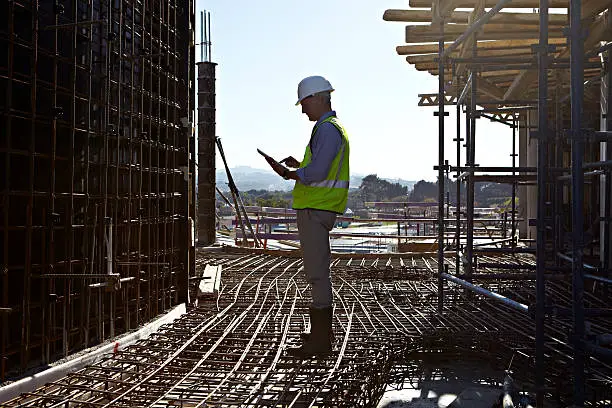Construction is a word that resonates with the creation of structures and the development of our modern society. It encompasses the art and science of assembling materials and resources to build, shape, and transform our surroundings.
From towering skyscrapers to intricate bridges and highways, construction plays a pivotal role in shaping our world. In this article, we will delve into the depths of what construction truly is, explore its various types, understand its significance in society, and appreciate the importance of the industry.
What is Building Construction?
Building construction, often referred to simply as construction, encompasses the process of creating structures meant to be used and inhabited by people. It involves designing, planning, procurement of materials and execution of the project to bring a vision to life.
Projects can range from residential buildings such as houses and apartments to commercial buildings like offices, schools, hospitals, and shopping centres. It also includes the building of infrastructure such as roads, bridges, tunnels, dams, and airports. The primary goal of building is to create functional and aesthetically pleasing structures that fulfil the needs of individuals and society as a whole.
Types of Construction
It can be classified into various types based on the purpose and nature of the project. Some common types of construction include:
- Residential: This type focuses on building homes, apartments, and other residential structures. It involves the building of single-family houses, multi-family buildings, and even entire communities.
- Commercial: Commercial construction involves the creation of structures intended for commercial purposes. This includes office buildings, shopping malls, hotels, restaurants, and retail stores.
- Industrial: This involves the building of structures for industrial purposes, such as factories, warehouses, power plants, and refineries. These structures are designed to accommodate heavy machinery and industrial processes.
- Infrastructure: Infrastructure construction involves the development of essential public facilities and systems. This includes developing roads, bridges, tunnels, airports, railways, water supply systems, and sewage systems.
How to Pronounce Construction
The word “construction” is pronounced as kuh n-struhk-shuhn, emphasising the second syllable. The phonetic transcription is [kuhn-struhk-shuhn].
Example of Construction
To illustrate the concept of construction, let’s consider the building of a high-rise building. The process typically starts with architectural design and engineering, followed by obtaining necessary permits and approvals.
The site is prepared, and the foundations are laid. Then, the structure begins to take shape with the erection of the building’s framework, floors, walls, and utilities. Finally, interior finishes, electrical and plumbing systems, and other essential elements are added. After meticulous planning, coordination, and skilled craftsmanship, the building is completed and ready for use.
READ ALSO: Top 10 Home Building Companies in the USA
Importance of Construction in Society
The industry plays a vital role in society for several reasons:
- Infrastructure Development: The sector is essential for developing and maintaining the infrastructure that supports economic growth and societal well-being. Roads, bridges, airports, and other infrastructure projects provide the necessary foundation for transportation, trade, and connectivity.
- Job Creation: The industry is a significant source of employment, offering opportunities to a diverse range of skilled and unskilled workers. The industry creates jobs and drives economic growth from architects, engineers, and project managers to construction workers and craftsmen.
- Shelter and Spaces: It provides people with safe and comfortable spaces to live, work, learn, and play. Residential construction ensures that individuals have homes, while commercial construction creates workplaces and facilities that support economic activities and enhance social interactions.
Importance of the Industry to the Economy
The construction industry itself holds immense importance for both local and global economies:
- Economic Growth: The industry contributes to economic growth by generating revenue, creating jobs, and stimulating other sectors. It catalyses investment and development, attracting businesses and fostering economic prosperity.
- Innovation and Technological Advancements: The industry drives innovation by constantly adopting new technologies, materials, and construction techniques. This leads to advancements in building materials, sustainability practices, energy efficiency, and overall construction processes.
- Urban Development: Construction plays a significant role in shaping urban landscapes. It helps transform cities by creating modern and sustainable buildings, revitalising communities, and improving quality of life.
Construction is the backbone of modern society, responsible for building our homes, schools, hospitals, and the infrastructure that supports our everyday lives. It is a multidimensional industry encompassing various projects, each serving a unique purpose. Thus, with its economic, social, and technological significance, the construction industry continues to shape our world, leaving a lasting impact on future generations.
